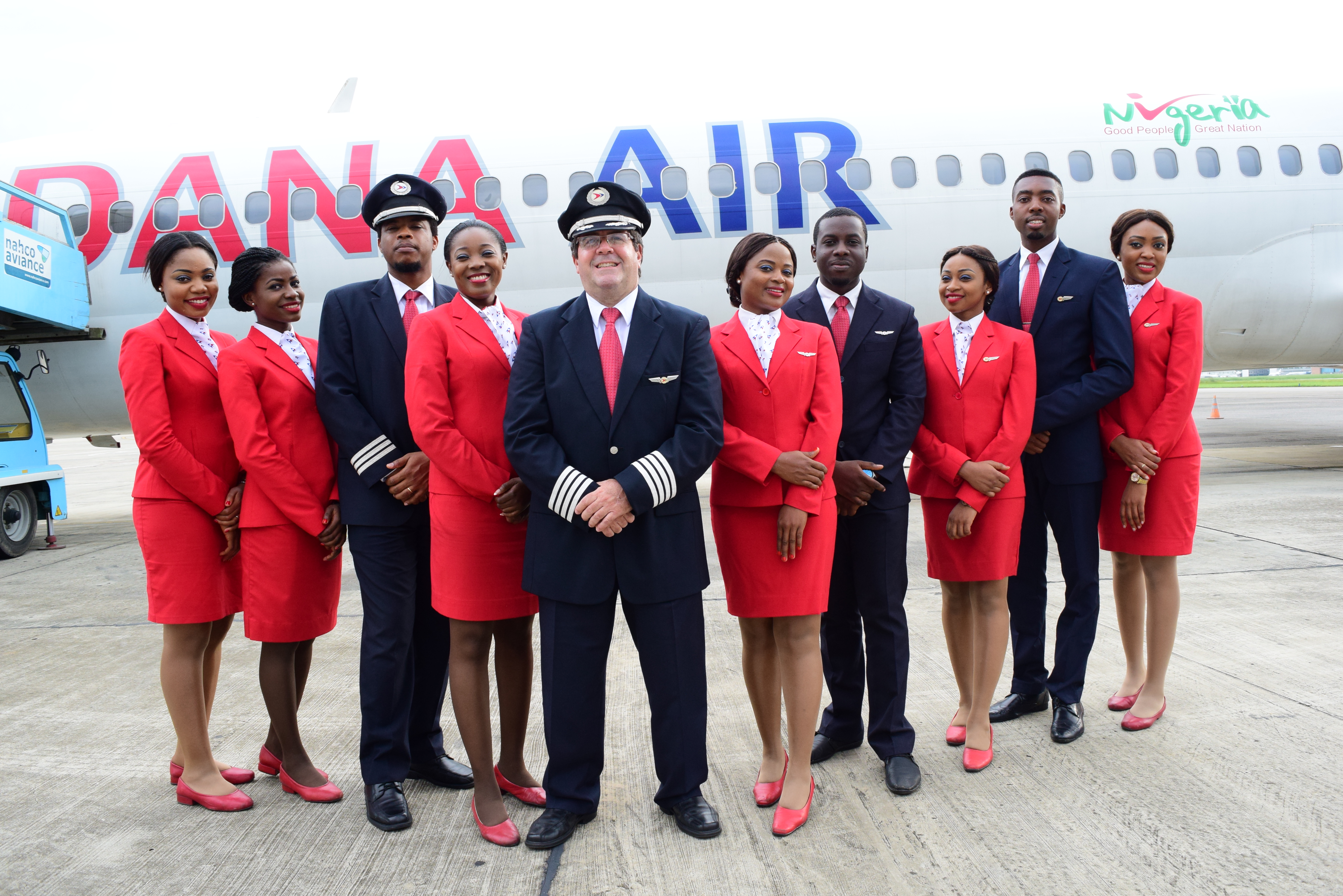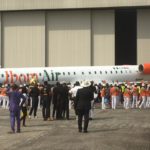If Nigerian airlines collaborate and interline, it will save them huge cost and improve customer satisfaction

It is the view of industry stakeholders that Nigerian airlines have better chances to survival if they collaborate and interline in their operations.
What exists presently is that every airline is on its own, except few of the local carriers that support one another on few occasions. Also, rivalry is so rife that some of the airlines allegedly use unscrupulous means to de-market one another.
The competition has ensured that over the years Nigerian airlines have not cooperated very deeply and have lost the benefits of interlining and codeshare, which many industry observers believe, could have saved some of them from going under.
Some of such benefits include, for example, two airlines using one aircraft instead of two to airlift passengers from Lagos to Abuja, when if each airline airlifts its own passengers, they would not make up to 50 per cent of the aircraft capacity.
This would save the airlines fuel costs, charges and possible delays that may occur if each airline decided to wait to see whether more passengers would arrive in order to airlift the number of passengers that would justify the cost of fuel. So if each airline would exhaust 400 litres of fuel from Lagos to Abuja. Two flights would exhaust 800 litres of fuel. But if one flight airlifts passengers meant for the two airlines, 400 litres of fuel will be saved.
Also, only one flight would pay for landing and other charges and only one flight would provide catering services. So each airline would save 50 per cent of what it would have spent if each had gone it alone. It is the same if one airline airlifts all the passengers by 8:00 am in the morning and the other airline airlift passengers for 7:00 in the evening. It means that both have saved each other 50 per cent of what they would have otherwise spent on the same operations.
Cut Throat Competition
Industry stakeholders agree that one of the major factors that has led to the short lifespan of Nigerian airlines is the intense competition and attendant animosity, where airlines celebrate one another’s misfortune and even blackmail one another.
For instance, there was a time a message circulated in the media, warning Nigerians not to fly Dana Air and that aircraft belonging to the airline would have impending accident.
Of course the airline denounced it and at the end of the day nothing happened. That is extremely obnoxious de-marketing.
The following week such message was directed against Air Peace where passengers were also warned not to fly the airline. They credited this message to a well-known pastor who was made to publicly deny it. Since then also, nothing happened to the airline. Nigeria airlines exist in a struggle.
Also, in Nigeria, aviation fuel is very costly. In fact, it is said to the costliest in West Africa if not in the whole continent where there is no civil strife or war. Yet, the product is sometimes scarce because it is imported and its availability is allegedly determined by a cartel.
Nigerian airlines pay the highest insurance premium in Africa because Nigeria is designated high country risk and also it has become very difficult for Nigerian carriers to lease aircraft; even if they can lease, it would be at outrageous price with strict, almost unrealistic conditions that would make the airline record losses instead of making profits on the aircraft.
Nigerian airlines also face the challenge of operating in airports and airspace with inadequate infrastructure, which include lack of airfield lighting, obsolete or absent of airport facilities, navigational aids and inclement policies but all these challenges are exacerbated by dog eat dog competition among the airlines. Industry observers posit that without cooperation airlines would continue to go under so they must remove the vestiges that tend to divide them and work in tandem to save themselves.
Eliminating Competition
Former Managing Director of Capital Airlines and currently industry consultant with Etimfri Group, Amos Akpan, told THISDAY that today’s investors have to aggressively work to succeed in spite of the environment because there is the potential for growth in the industry, urging that operators should pull capacity per route.
“We must eliminate competition that is economically suicidal. Dana, Aero, Azman, Medview, Max, should approach a bank with an IT program that will make it possible for a passenger to travel on any of their aircraft with same ticket. The bank will sort out the monetary transfer to the carrier (not withstanding the issuer). Rather than carry 50 passengers in competition, you turn your 50 passengers to another carrier, which already has 80 passengers on same route, and receive passengers from others to your destination.
“Airline management needs money from economically viable flight operations to stay safe. You make money to pay for spare parts, to fix tech snags, for checks, for salaries, for training, and to repay loans. To break even, load on B737 classics for one hour flight (point A – B) is 88 passengers at N25, 000 per seat. Each time you carry 88 passengers you’ve met the cost of that hour’s flight (no profit),” Akpan said.
He emphasised that the money the airlines’ bankers sees, as inflow from sales should not excite the airline until it pays for fuel, maintenance, insurance, handling, navigation, tax, catering, personnel, and the cost of fund.
“It is high time airlines in Nigeria focused on economics of their operations than the emotions of flight operations. Excitement of owning and operating an airline is good, but to stay safe you need to be profitable.
“It is extremely difficult for an airline that incurs financial losses not to compromise some safety standards. It takes months before you discover you are making or losing money. The reason is because you don’t pay on the spot for fuel, spares, maintenance, insurance, taxes etc.
“Bills come weeks after you have operated. Therefore, know your break-even load factor. Schedule your flights to avoid continuous lower than break-even load turnouts. Reduce to almost zero delays and cancellations that are due to your organization’s fault. Invest a portion of your profit on system upgrades and innovations.
“The policies and environment are harsh but the market is sufficient for a strategic management to make returns on investment,” Akpan said.
Interlining
Travel expert and organizer of Akwaaba African Travel Market, Ikechu Uko, said he collaborated with the International Air Transport Association (IATA) to develop interlining programme for Nigerian airlines but lackluster attitude of some of the airlines frustrated the realization of that goal, which would have put domestic airline in profit making pedestals in almost all their operations, while they beat down losses. It would have eliminated flight delays, cancellation and made air travellers happy because it would have promoted on-time departures.
“The major reason why some Nigerian airlines are suffering is because they are not doing interlining and this is what gave rising to constant flight delays and sometimes cancellation.
“IATA was poised to assist Nigerian carriers and it has software for a seamless partnership among the airlines. IATA wanted to serve as brokerage organization and with the software serve as clearinghouse for everyone.
“We had two meeting with IATA, but some airlines attended and others did not. In fact, it was the government of Ghana that showed greater interest. It wanted the system to be introduced in the West Coast. Interlining would have worked if Nigerian airlines had supported it,” he said.
The travel expert explained that all the airlines would not have to fly when they do not have full passenger load. After the peak hours they could do combined flights, where passengers billed on the tickets of different airlines would travel with one flight.
“For Example, Dana Air may offload his passengers to Medview at 8:00 am fight from Lagos to Abuja and at 11 am Medview may offload its passengers to Medview.
“So each airline cuts losses and makes more money. Currently we don’t have enough number of aircraft but some flights are not recording full passenger load. This would have been sorted out if airlines can combine passengers so each flight would have full load and the airlines would later reconcile their accounts. IATA wanted them to see the need of that. I called on Airline Operators of Nigeria (AON) members for the meeting. It was only Dana Air that attended all the meetings,” Uko said.

Workability
Head of Communication of Arik Air, Adebanji Ola, said he is not hopeful if interlining could work among Nigerian carriers, noting that the system has been known to be successful on international flights. He said that the system that has been tested and it is working is the re-protection agreement between airlines, whereby an airline can offload its passengers to another airline to one destination and after the airlines would reconcile their accounts.
“We don’t have code-share. What I do know is re-protection agreement which is, if you have a flight that is going to Abuja, for example, and you take your passengers to join a flight of another airline. We did it with Medview Airline some time ago. I doubt if code-share can work on the domestic routes; except when you are flying out of the country,” he said.
Dana Air seems to have epitomised the interlining system among Nigerian carriers. It has been partnering with Medview and Aero Contractors. Dana Air airlifts Medview passengers and Medview operates Dana Air flights with its own aircraft. It was the same with Aero Contractors. But for this to be effective, it must be done in a larger scale to benefit all operators in the industry.
Spokesman of Dana Air, Kingsley Ezenwa, said interlining would seriously help the airline industry. He noted that the challenge was if all the airlines would agree to it. He observed that if all the airlines work with one purpose, which is to operate profitably, then they will make the necessary adjustments and work together.
He said that Dana Air and Medview airlines have strong relationship and they are working together and said if all the airlines were working together it would take out unhealthy competition, which is contributing to the destruction of domestic carriers.
“Interlining will also help the passengers because it will help to eliminate delays and flight cancellations. It will help Nigerian airlines to grow. It will also help the flying public and there will be harmony in the industry.
“But now competition is stiff and breeds animosity. Interlining will be key to the survival of the airlines so we need to embrace it,” Ezenwa said.
Many industry stakeholders believe that it is ego rather than philosophy and purpose of the airlines that is responsible for lack of cooperation among Nigerian carriers, but until this challenge is addressed, the report that airlines go under after sometime may continue to live with us.
THISDAY






